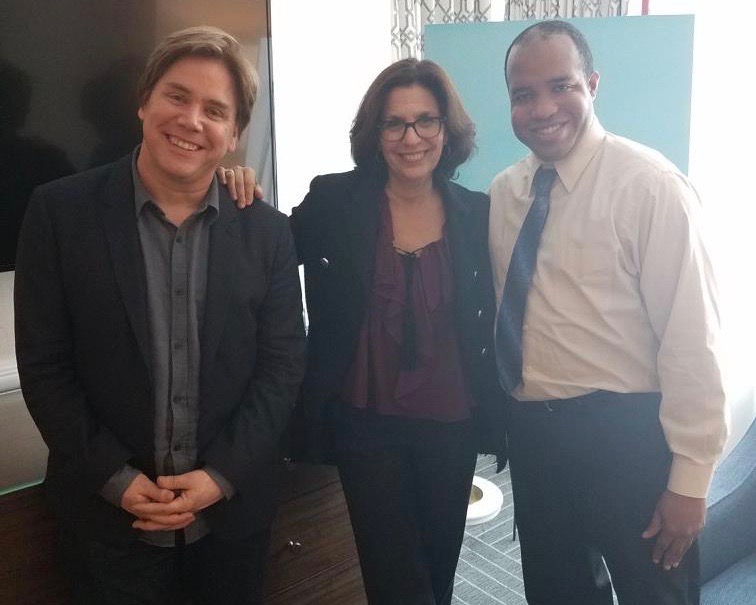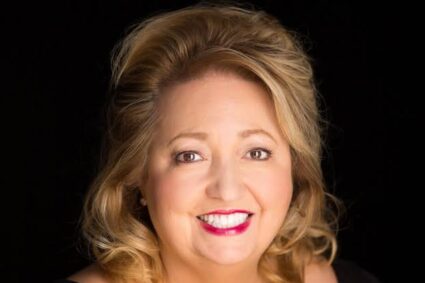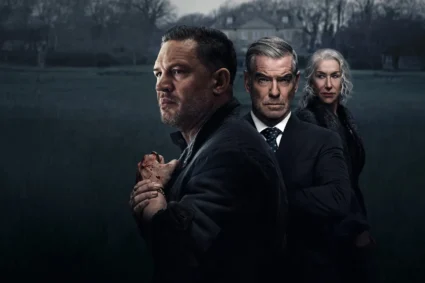
On this edition of INTERVUE, I talked to the team behind this season’s feel good film, Wonder. The movie, based on the novel of the same name stars Julia Roberts, Owen Wilson & Jacob Tremblay. WONDER tells the incredibly inspiring and heartwarming story of August Pullman, a boy with facial differences who enters fifth grade, attending a mainstream elementary school for the first time. I recently sat down with “Wonder” author R.J. Palacio and director & screenwriter Stephen Chbosky to discuss this amazing film.
Let me start with you, Steven. Let’s talk about working with the young man, the wonderful Jacob Tremblay, and talk about the process of the makeup—it was so realistic enough that it has to truly convey his performance, so tell me a little bit about that.
Stephen Chbosky: Jacob Tremblay is—if you ever see the movie “Room”, you will never forget that performance.
I have seen the movie “Room”. It was one of my favorite performances.
SC: Oh yeah, a couple of years ago. Absolutely fantastic. He is such a talented actor. I’ve worked with a lot of actors. We needed to find a kid who would have the patience, who would have the talent to be able to convey all of those emotions through the makeup, because at the end of the day, the only thing you’re feeling is all from the eyes, the mouth and his movement. So, you needed somebody of Jacob Tremblay’s caliber to pull that off.
So R.J., for those who do not know, how does the story come to be? I remember reading it started with a young girl that you saw at an ice cream store. Can you tell us a little more about that?
R.J. Palacio: It was a very brief encounter. I never spoke with the little girl. I can’t even say I know what her story is. It was basically just my reaction—or my son’s reaction to her face. Just got me thinking about what it must be like to face a world every day that doesn’t know how to face you back. So, I just started writing as a sort of a point of exploration, just trying to figure it out, what it must be like to get stared at wherever you go; what it must be like to have people point at you; what it must be like to face those kinds of challenges every day.
And here I am, talking with two New York Times bestsellers, which is amazing. So, I want to continue with you, R.J. What is like to hand your novel over to this gentleman over here, who has written & the screenplay of the novel of his movie; and now he’s got your screenplay in his hands, and he’s directing the film?
RJP: Well, it’s tough to hand over your book to anybody, you know?
(laughs)
RJP: There’s a lot of trust involved. You have to trust that the person will do justice to your story, your characters and your themes. Luckily, Stephen and I…we had met, we had dinner, I kind of felt like he had Wonder’s back. I knew it. I could tell that he wanted to make the kind of movie I wanted to make, and I felt pretty confident. Not to say I wasn’t scared, but I felt pretty confident that if anybody could make it happen in a way we could all be proud of, it was Stephen.
I enjoyed how the story was presented in different perspectives. We have a perspective from Auggie; we have a perspective from his friend; we have a perspective from his sister Via, especially how her life really doesn’t revolve around her; it revolves around Auggie. And I want you two to talk about the different perspectives presented in this movie, as well as the novel.
RJP: In the novel, we hear from a couple of other characters who were not in the film. The idea was to tell Auggie’s story from different points of view. It’s all Auggie’s story. We’re learning about Auggie’s journey through the fifth grade. After years of being homeschooled, he starts school for the first time in his life and he’s kind of figuring it out and we’re watching him go through it. But, we see his story told through multiple perspectives. That’s what was so wonderful about the movie, it managed to keep those perspectives.
SC: To me, when I read the book—I guess, two and a half years ago now, when it was sent to me around the time my son was born—I read it and I loved the story of Auggie. It was lovely. Oh, when it gets to be Summer, Jack and all these characters…and when I turned the page to the “Via” section, I was so surprised and delighted by that shift. And what I found in the genius of this book and why I think it will be a classic that will be taught in schools for many decades to come is that by going inside other people’s experiences and into their minds—RJ’s holding up a mirror to all of our prejudices. You think that you know the sister. You could have just dismissed her, “oh she’s having teen angst. And then you realize how this all affects her. You’re like, “oh, God, that poor kid!”
I kind of get choked up just thinking about it because everybody you think you know, you don’t, and every story that you’ve just assumed you understand, you don’t understand anything. And it was such a great, brilliant literary device, but told was such sensitivity and that, more than anything else, is what made me just obsessed to make the movie and make it right. Because cutting to those point of views, doing those cards the way she does the chapter breaks in the book was a really exciting thing to try to pull off.
Considering both your books, it seems like when they turned into great movies and reading the books at the same time, it seems like they’re both required reading for kids and I want to know, for you R.J.—since I’ve already asked this question of Stephen years ago—how do you feel about the impact it has on kids and adults in how your book has touched people, because when I watched the movie, it really touched me deep inside. It reminded me how I was a bit of an outcast growing up in school because I had a speech impairment growing up and I felt Auggie’s pain going through that, so I want to know how does it feel to have that impact from kids who tell you, “thank you for telling this story, thank you for writing this story”?
RJP: It’s incredibly moving, and incredibly humbling and it’s all the things you might imagine. Knowing that your words have impacted or inspired people to be more empathetic or more compassionate; certainly more tolerant and more curious in a good way about differences. One of my favorite comments that I’ve heard a lot from young readers is, “you know, after I read your book, I was more inspired to get to know that kid in class that no one knows or no one plays with or no one sits with at lunch.” I heard a lot about that, kids reaching across those sort of natural distances that do develop in classrooms and at that age and maybe going out of their comfort zone in terms of seeking out new friendships. So that’s really inspiring. If that’s the legacy I’m going to leave behind, I’m good with that. That’s a good one.
Well, it’s definitely a good legacy, considering today’s political climate where it seems like being not nice is the norm, but you have to be nice. I want to know was this perfect timing that this film was coming out, especially given what’s happening in the world right now?
RJP: You answer it. His is the shorter answer; mine is long! (laughs)
SC: I think the timing couldn’t be more perfect, because it has been such a very difficult year. Anyone can agree with that, no matter your political affiliation and there’s so much division and I’m really proud to be associated with a story like this that everyone seems to so far—it’s been lovely—agree is about something the world could use more of. And I think Auggie Pullman is a hero, and all the people around him that love him and care about him are good role models for us all. I really do.
RJP: I would just say that children learn what they live and they model behavior that they see, and kindness is not something that belongs to any political party. It’s not a democratic thing; it’s not a republican thing. It belongs to all of us. It’s a human thing. When you see people in government, when you see leaders acting in a way that is anything but kind to groups of people and singling people out for discrimination, or if you hear about bans or walls or all of these things that divide us, usually represented in a most unkind fashion, you start to wonder, “what the heck is going on?” and what is happening to the public discourse of this country where kindness seems to be…where has the kindness gone? So if “Wonder” can somehow be a little jolt of a little reminder about the essence and the importance of kindness and the power of kindness, that would be great. Maybe it is a good movie for the times.
SC: Let me just add one thing. One of the great things art can do—if you can make any member of an audience or a readership feel that we all—if you love your mom or you love your best friend—if you start to make everyone understand on some level, that everybody has that mom, everybody has those friends, everybody has a chance at life, it can do a lot of good in the world. All you have to do is slow down and realize that everyone you met today is a hero in his or her own life and they have every right to happiness that you have. I think it can be very profound.
To the both of you: who has been your heroes? The person who stands out in the crowd and you never knew this person at first and now they’re your best friend for life. Who has been that person for you?
RJP: Well, I bet you were going to say the same thing. I’m going to say my husband, he’s going to say his wife.
Awesome!
RJP: Or maybe I’m wrong.
SC: No, no, absolutely. My wife, everything good in my life now, is basically a result of meeting her and knowing her and she’s given me a family, she’s given me a purpose. Absolutely. I would say in terms of, maybe in the spirit of which you asked, which is for me will always be Stewart Stern, who wrote the movie “Rebel without a Cause”, “Rachel, Rachel” and “Sybil” and all these wonderful films. He was at the school where I went to. He was my mentor since I was 19. He passed away a couple of years ago. He was that person for me in terms of the inspiration of what it meant to be an artist and those kinds of things. I’ll always cherish those memories with him.
Wonderful. And mine, just to let you know, was a Captain named Roy Morris, who was an JROTC instructor of mine. And when I lost my mother during my high school years, he actually became a surrogate father to me. When I became an actor and I was in a Star Trek fan film, they wanted me to name my character, I was like, “I know my character’s name is going to be my teacher’s name”.
RJP: That’s wonderful!
SC: I love that.
Thank you. One last question. Stephen, this is for you. Since you wrote the screenplay and directed two books, is there another book in the works that you want to direct one day?
SC: Yeah, I finished it thirteen days ago.
(laughs) Perfect timing!
SC: I can’t talk about it yet, it is kind of a secret, but it is something I worked on whenever I had a break from the movie business, I’d work on it. I’ve worked on it for five years. I thought of the idea—God—seventeen years ago, I think, fifteen years ago. And it was really cool to write my second book. Anyone who has written a first book, man that second one is a real bear, isn’t it? (laughs)
DR & RJP: (laughs)
SC: Luckily, she’s like—you have many of those companion books. That counts! So yeah, absolutely. Nothing would make me happier. I love literature, I love books, and there’s nothing more gratifying to me than to take a book that I consider to be a true classic—and that’s what Wonder is—and have anything to do with spreading the word about it, because at the end of the day, as proud as I am about the movie, and I do think the movie serves the book, I’m just so grateful, the idea that millions and millions and millions of more readers will find it because of this very lovely, elegant book commercial.
Wonder – IN THEATRES NOW


